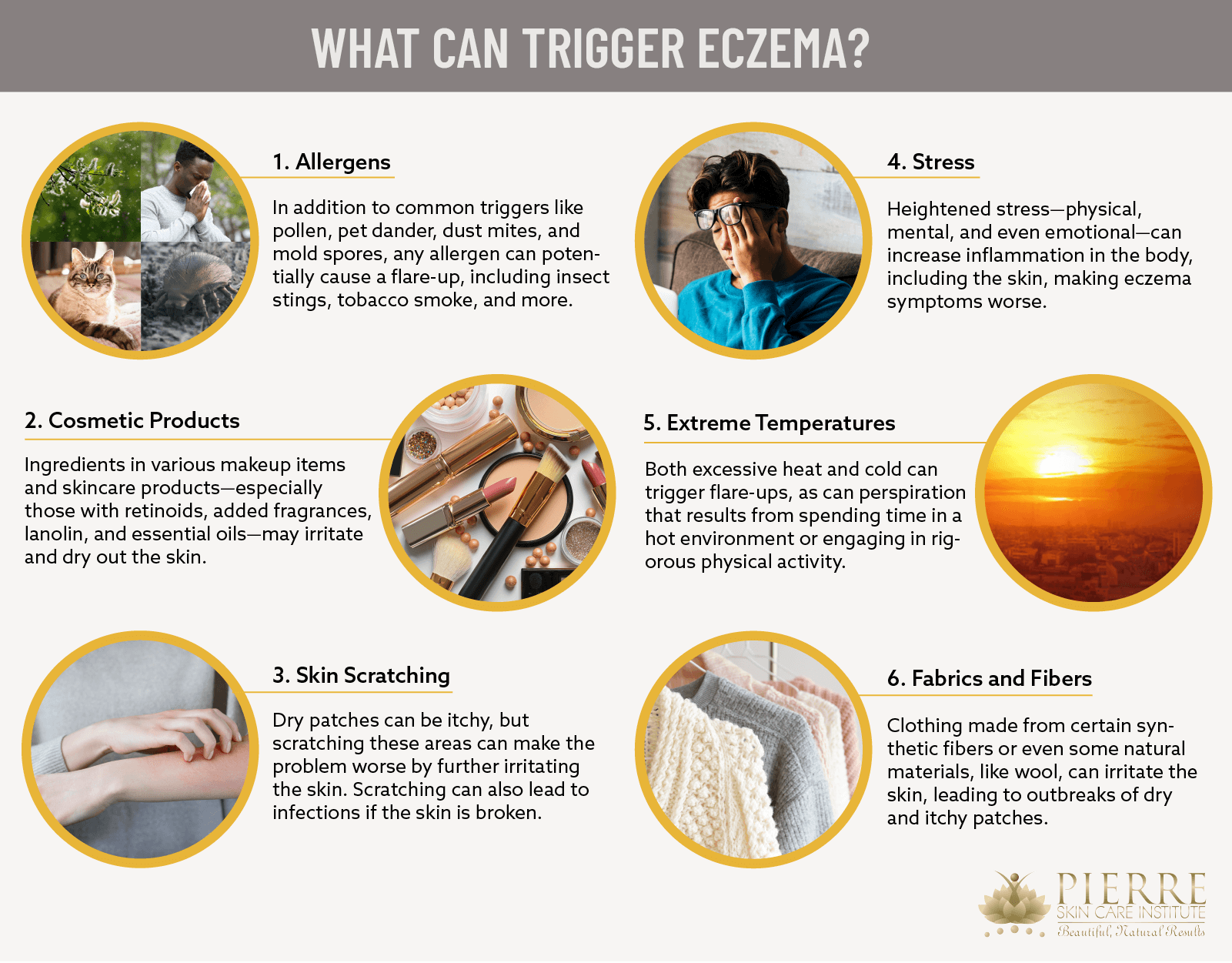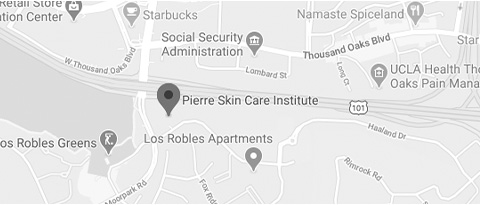Eczema
GET HELP MANAGING CHRONIC , ITCHY RASHES IN THOUSAND OAKS
Patients who have chronically itchy, red, and dry skin may have a condition known as eczema. Westlake Village’s Dr. Peterson Pierre, serving Thousand Oaks and beyond, routinely works with women, men, and children dealing with the rash that can be a lifetime problem.
Only admnistrator owned posts can execute the [includeme] shortcode. This message is shown only to administrators.
According to the National Eczema Association, more than 30 million Americans are diagnosed with this condition, which has no cure. It is possible, however, to manage the symptoms, as well as to identify common triggers that cause flare-ups. A combination of lifestyle changes and carefully chosen medications or other treatments has the potential to vastly improve patients’ quality of life.
[includeme] shortcode. This message is shown only to administrators.
What Is Eczema?
The rashy redness known as eczema can take several forms, all of which share the name that stems from the Greek word for “boiling over.” Indeed, the condition commonly causes symptoms that resemble skin scalded by hot water—especially redness, discomfort, and pain.
These rashes can develop anywhere on the body. Some patients deal with them in a concentrated area, while others may struggle with redness, scales, and sores all over widespread regions. It can affect the scalp, trunk, arms, and legs, and is commonly found in the bends of the elbows and knees.
Only admnistrator owned posts can execute the[includeme] shortcode. This message is shown only to administrators.
The condition is often diagnosed in children. In some cases, the severity may decrease as they become adults, but it can also grow worse over time. There is no way to predict which direction eczema will go, so it is important that patients maintain an ongoing conversation about treatment with Dr. Peterson Pierre and his team.
Many eczema patients deal with skin that is always red and itchy. This leads them to scratch at the area, causing damage, releasing inflammatory chemicals, and resulting in even more itchy skin—thus the cycle continues. Some patients will scratch their skin until it bleeds, which can make the condition even worse.
Many patients also suffer from depression because of their condition. Controlling the problem is essential for physical and mental health, so patients are urged to discuss treatment options with Dr. Pierre as soon as possible to reduce the itching and allow the skin to heal.
Only admnistrator owned posts can execute the[includeme] shortcode. This message is shown only to administrators.
What Are the Different Types of Eczema?
Atopic dermatitis is the most common form of eczema, typically manifesting as dry, scaly patches of skin that can flake, crust, and crack. Other forms include:
- contact dermatitis, which is a rash that develops after skin interacts with specific substances, such as certain cleaners, materials, or foods
- dishidrotic eczema, appearing as blisters that develop on a patient’s extremities
- hand eczema, which—as the name suggests—can be found on the hands
- neurodermatitis, characterized by thick, raised scales that have an itchiness made worse by scratching
- nummular dermatitis, which causes small, round lesions to form
- seborrheic dermatitis, which causes dandruff in addition to red, scaly patches
- stasis dermatitis, associated with poor blood flow in the lower extremities and responsible for redness, itchiness, and sores

What Causes Eczema
Despite decades of study, medical researchers are still not entirely sure why certain people develop eczema. Data indicates a link between the condition and immune system reactions, suggesting a tie to allergies. It’s possible that the immune system being overactive leads to the skin barrier becoming dry and itchy. For people who have eczema, their immune system will overreact to small triggers such as irritants or allergens in the environment and the body’s natural defense system is activated. The immune system creates inflammation as a result.
The problem seems to have a genetic component. Experts believe that patients who have a family history of eczema, dermatitis, asthma, hay fever, and allergies have a higher risk of getting eczema. Alternatively, some people have a genetic mutation that causes the skin barrier to not function properly.
WHAT TRIGGERS ECZEMA FLARE-UPS?
Eczema is not contagious, and you can’t “catch it” from someone else. Everyday household products such as laundry detergents, soaps, and fragrances may contain ingredients that can cause irritation in the skin for people who have eczema. Flare-ups are triggered by environmental factors and other irritants such as smoke, air pollution, harsh soaps, certain fabrics like wool, and exposure to extreme heat or cold, low humidity, high humidity, hormones, and stress. Dry skin can also make it more likely for eczema to flare up.
There are many things in the environment that can cause outbreaks of eczema. Although it is still not fully understood why this is the case, there’s also a link between your mental health and the health of the skin for people who have the condition. High levels of stress, depression, and anxiety are believed to cause flare-ups of eczema to occur more frequently.
A “flare-up” refers to a phase that may last for several days or weeks where one or more of the symptoms of eczema occur. The triggers for eczema vary from person to person as what causes the inflammation for you may not be the same for another person. However, flare-ups will usually look similar. Outbreaks of this condition are physical manifestations of the inflammation.
HOW IS ECZEMA DIAGNOSED?
To diagnose this condition, Dr. Pierre will perform a physical exam to look closely at your skin. He will also talk to you about your symptoms and go over your medical history. He may perform tests or a skin biopsy to rule out other skin conditions, since the range of eczema symptoms can often cause it to resemble other skin diseases.
When it comes to treating or managing any skin condition—including rosacea, psoriasis, acne, and skin cancer—an accurate diagnosis is the critical first step.
What Can Be Done About Eczema?
Since eczema is a chronic condition that involves so many unknowns, there is not a cure. The symptoms, however, can be managed with a range of strategies. The treatment plan you choose can be tailored to address your specific symptoms. The most suitable treatment option for eczema depends on several factors, including the age of the patient, the severity of their symptoms, what triggers their outbreaks, and more.
Most eczema treatments are intended to alleviate the itching and discomfort while also preventing infections or additional outbreaks.
Many of the symptoms of the condition can be managed with a good skin care routine. Home remedies for coping with the unpleasant symptoms of eczema include applying gentle or sensitive skin moisturizers to dry skin during the day. Patients who suffer from eczema should also implement a daily routine of moisturizing after a bath or shower to seal in moisture.
Take baths with warm (rather than hot) water, drink plenty of water to stay hydrated, and get a humidifier if necessary to help with dry skin.
Other strategies include wearing loose clothes that are made with cotton or other natural materials. Also, use skin care products that are hypo-allergenic, fragrance-free, and dye-free, are intended for gentle or sensitive skin, contain petroleum jelly or mineral oil, don’t have preservatives or stabilizers, and contain lipids and ceramides.
Dr. Pierre may recommend topical, injectable, or oral medications, as well as cortisone or other creams. He also may refer patients out for light therapy to enhance the look of the skin while also minimizing blemishes.
Another important aspect of care is identifying potential triggers so they can be avoided in the future to minimize flare-ups. It’s important that you know your triggers so you can avoid exposure to the elements, conditions, and situations that make symptoms worse. By limiting contact with certain metals or textiles, soaps, fragrances, ointments, dyes, foods, and more, it’s possible to reduce redness, dryness, itching, and burning sensations. You should also look for ways to manage stress and emotional triggers.
It may take several weeks before your skin improves after treatments for this condition.
Why Choose Pierre Skin Care Institute for Eczema Care in Thousand Oaks?
Dr. Peterson Pierre is a board-certified dermatologist with extensive experience in medical dermatology. By studying and treating a wide range of patients dealing with such chronic conditions as eczema, psoriasis, and rosacea, he maintains a thorough working knowledge of skin diseases, triggers, and treatments. Pairing his broad practical experience with his education, he can create custom-tailored treatment plans that make a difference for individuals dealing with embarrassment, discomfort, and pain due to their condition.
Only admnistrator owned posts can execute the[includeme] shortcode. This message is shown only to administrators.




